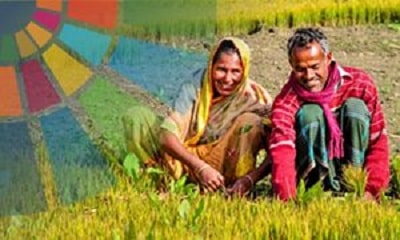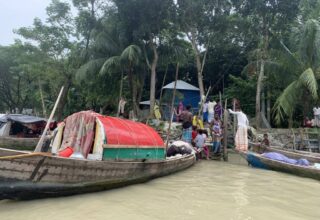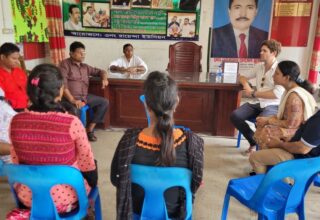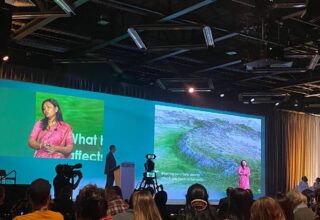
Over the past eight months we—in our capacity as Action Track Chairs for the UN Food Systems Summit—have received well over 2,000 written submissions from around the world on how to transform food systems so that they can deliver access to safe and nutritious foods for all, in ways that deliver sustainable consumption, use approaches that are positive and regenerative for nature, generate livelihoods and decent work for those who depend on the food system, while promoting equity and building resilience for all.
We have served as antennae, picking up these ideas; as convenors, bringing people together to develop them; as critical friends, challenging people to think more deeply about why their idea is transformative; and as connectors, working across the 500 action track members (at least half of whom are member state officials) to ensure that synergies within and across the action tracks are realized with trade-offs identified, minimized, and managed.
The work has been challenging, but invigorating. We have learned a lot about each other’s silos, and how to break them down. We now enter a critical phase in the Summit’s trajectory. We have to get from thousands of ideas and dozens of solution clusters to a handful of areas of convergence which radiate ambition, action and acceleration.
These areas of convergence must be relevant to the UN member states priorities, appeal to the general public, be scientifically grounded, and be faithful to what we heard from the wonderful idea generators from around the world, including a third from member state officials themselves.
This is not an easy job. Luckily it is not only ours. All components of the Summit will contribute to their crystallization: National and global Summit dialogues, the Science Group, the Champions, Action Tracks, Levers of Change all integrated by the Secretariat led by UN Special Envoy Dr. Agnes Kalibata.
As we move towards the food systems Pre Summit, various coalitions will undoubtedly form around national pathways for food systems transformation that are emerging from the hundreds of Summit national dialogues taking place and the action propostions that have emerged from Action Tracks and Cross-Cutting Levers.
In our view, coalitions that emerge will, at least, need to:
- Galvanize and steer precious resources towards food system transformation: Whether that energy comes in the form of political capital, social movement activism, popular sentiment, business models, or financial instruments and capital.
- Connect with the hearts and minds of decision makers everywhere: Coalitions must draw on knowledge across all levels—from the fields, to the household. to the community, to the schoolroom, to the boardroom, and to the Cabinet room.
- Connect to each other in one big coalition for food system transformation. They must exemplify and stimulate real systemic shifts in the way we think, plan, measure, incentivize and value healthy diets within sustainable food systems.
The task is urgent. The indicators on the food systems dashboard are mostly moving in the wrong direction. And fast. But the controls can be adjusted, and we can align them with a vision of a planet where everyone has good food to eat, can recover from the beating we are giving it, and where the food system is a source of decent, dignified work and is resilient to the coming shocks of the next ten years.
These storms can be weathered. We can achieve and even exceed the SDGs by 2030—if these coalitions are driven by a spirit that is uncompromising in its determination to attain these targets, and yet flexible as to how we get there.
It has been our privilege to work with the thousands of you to build ideas, actions and energy that turn the food system from a big part of the problem of human and planetary wellbeing to being a big part of the solution. Thank you from the bottom of our hearts. But our work is not yet done. We have three more months of hard work until the Summit to put our collective contribution in place. Even then, the Summit is only the end of the beginning; the next step is to support the development of the now-emerging national pathways for food systems transformation. This is exciting; it’s where the rubber hits the road.
Colleagues, partners, champions: We have nine more harvests to 2030. Let us all work together to make those harvests more and more bountiful for people and planet—for everyone, everywhere, and for all time.
Originally this Blog was published on Jun 23, 2021 at IFPRI Website
About the author
Christine Campeau is Senior Advisor, Food Systems, at CARE; Lawrence Haddad is Executive Director of the Global Alliance for Improved Nutrition (GAIN); Gunhild Stordalen is Founder and Executive Chair, EAT; Sandrine Dixson-Declève is Co-President of the Club of Rome; Saleemul Huq is Senior Fellow in the Climate Change Group at the International Institute for Environment and Development (IIED) and the Director of the International Centre for Climate Change and Development; João Campari is Global Leader, Food Practice, at the World Wildlife Fund.







